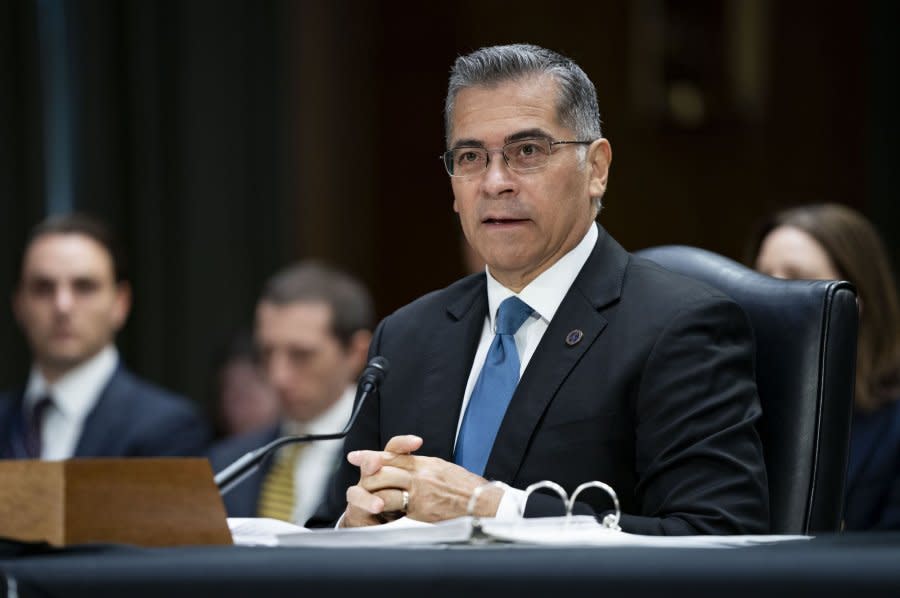HHS task force moves to combat syphilis as cases hit 'record high'

- Oops!Something went wrong.Please try again later.
Jan. 30 (UPI) -- The U.S. Department of Health and Human Services on Tuesday touted its efforts to combat the surging syphilis epidemic.
Through the National Syphilis and Congenital Syphilis Syndemic Federal Task Force established in November, the HHS is leveraging federal resources to reduce cases and direct resources to support those most affected, the department said in a release.
"These actions we are taking will help ensure we are improving outcomes for birthing parents and newborns," said HHS Secretary Xavier Becerra. "We must prevent more deaths caused by congenital syphilis, an entirely preventable disease."
HHS has already taken several actions since the beginning of 2024 to stop the spread of syphilis. The U.S. Food and Drug Administration in January authorized a temporary importation of Extencilline to remedy the ongoing shortage of Bicillin L-A.
Extencilline is authorized and marketed in other countries.
Bicillin L-A, a form of penicillin, is crucial to the treatment of syphilis, but the National Coalition of STD Directors discovered in November that 46% of sexual health clinics could not order it for patients.
Pfizer, the drug's manufacturer, alerted the FDA that the shortage might last until mid-2024.
In January, HHS also led two workshops -- one with Native American tribes and another with providers who serve people disproportionately affected by syphilis -- to gather input on how the department can improve services and outcomes related to syphilis and sexual health.
Primary and secondary and congenital syphilis rates are highest among Native American people, HHS said. For every 155 Native American births in 2022, there was one case of congenital syphilis.
More workshops on syphilis prevention and treatment will take place in February.
Syphilis can seriously damage the heart and brain and cause blindness, deafness and paralysis. When transmitted during pregnancy, it can cause miscarriage, lifelong medical issues or infant death.
According to a U.S. Centers for Disease Control and Prevention report, 207,255 total syphilis cases were reported in the United States in 2022, an 80% surge since 2018.
The CDC recorded 176,713 syphilis cases in 2021, which at the time was considered a "record high," but the numbers have since grown to compete with the highest rates of 217,558 cases in the 1950s.
"In the United States, syphilis was close to elimination in the 1990s, so we know it's possible to reverse this epidemic," said Dr. Jonathan Mermin, director of CDC's National Center for HIV, Viral Hepatitis, STD, and TB Prevention.
The 2022 report found over 3,700 cases of congenital syphilis among newborns in more than 10 times the number of documented cases a decade ago.
The CDC also said 9 in 10 newborn syphilis cases in 2022 could have been prevented with timely testing and treatment during pregnancy.
According to HHS, cases rose in nearly every demographic group and region, although there were disparities among certain racial and ethnic groups.
African Americans, for example, comprised 32% of all primary and secondary syphilis cases and 30% of congenital syphilis cases in 2022, despite making up only 13% of the U.S. population and 14% of live births, according to HHS.
Other agencies have already stepped up to address the syphilis epidemic. In July 2023, the Health Resources and Services Administration and Indian Health Service issued letters to recipients and care providers with information to address the epidemic among Native Americans.
IHS also announced an initiative in October that includes resources for tribal communities to prevent syphilis and other sexually transmitted infections.
The CDC published its first draft guidelines in October for use of the common antibiotic doxycycline to prevent the spread of syphilis and other STIs among LGBTQ people.

